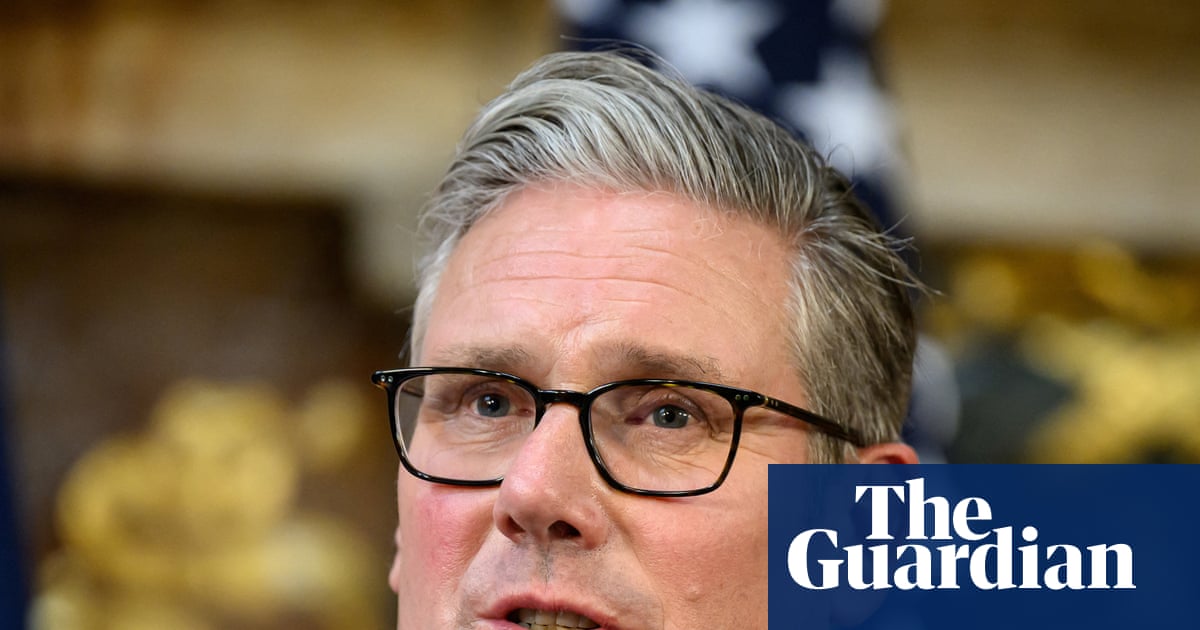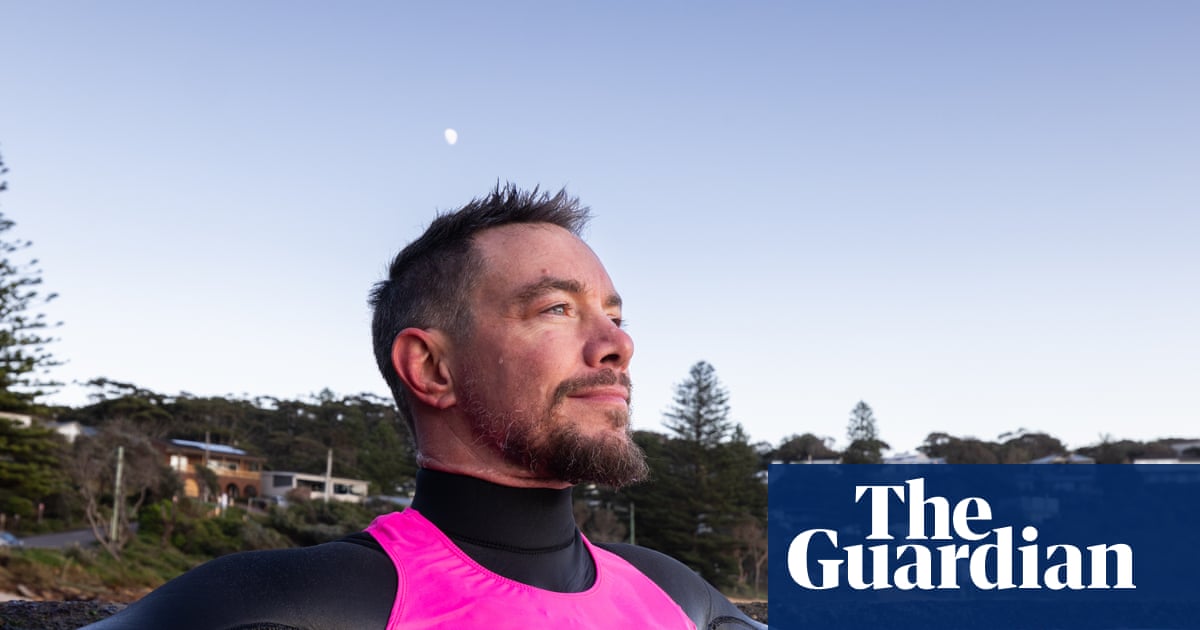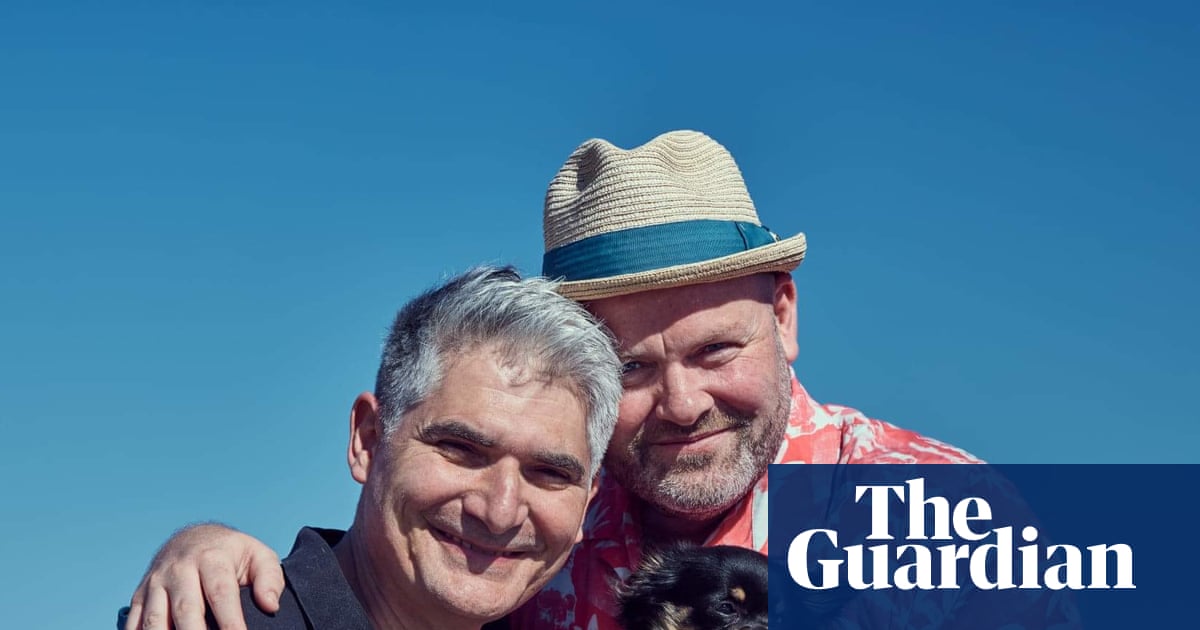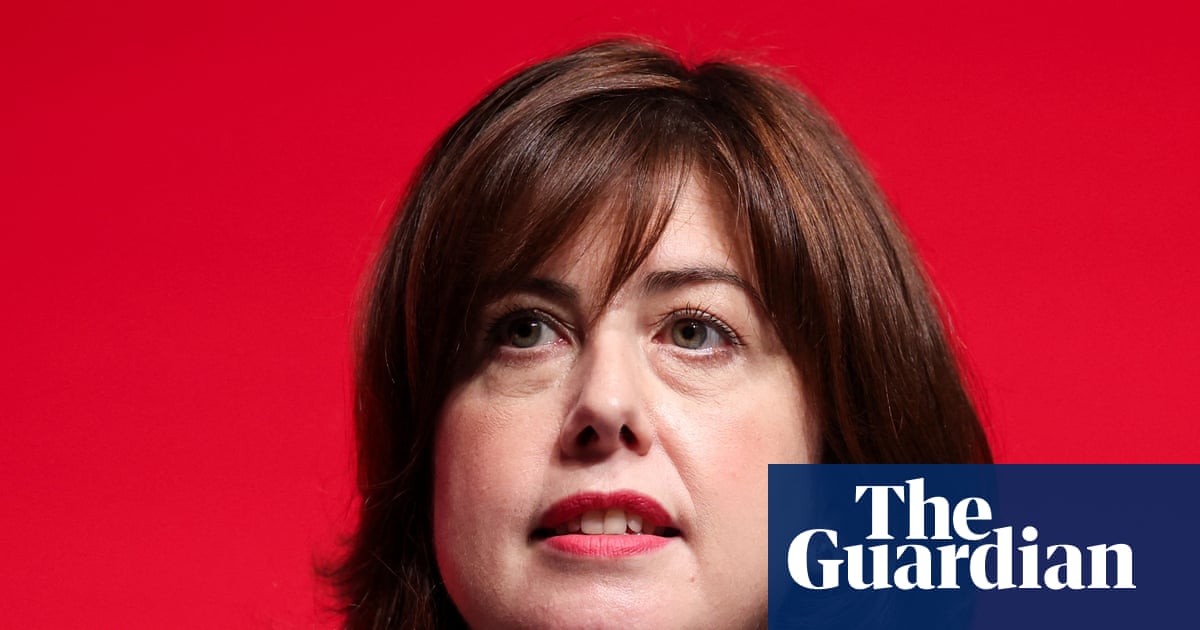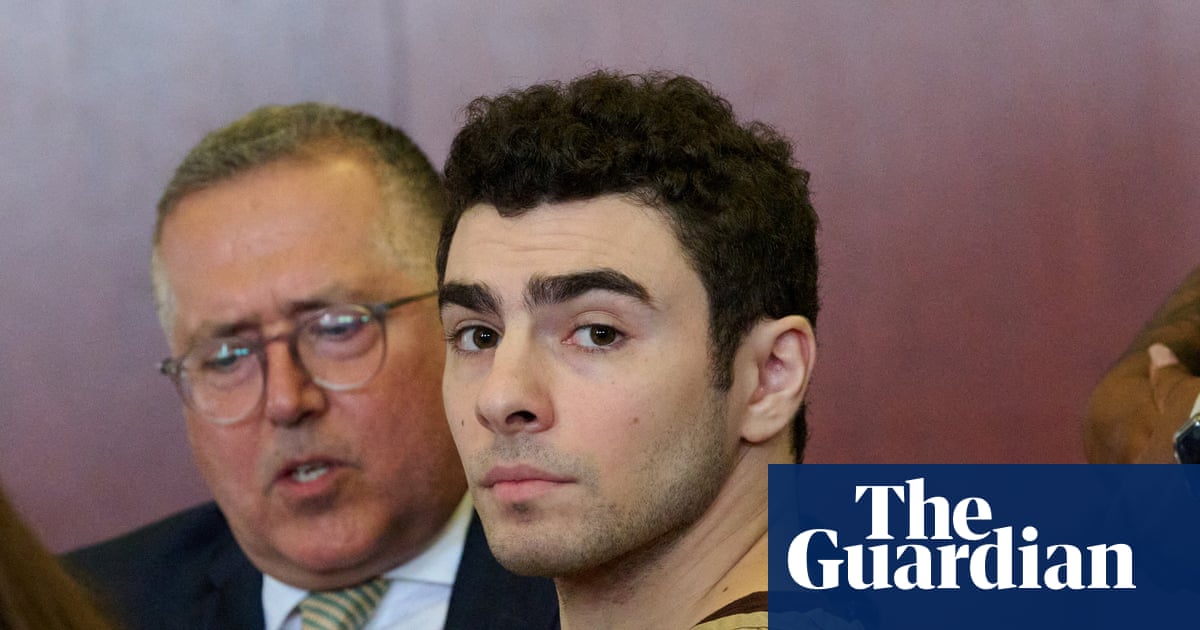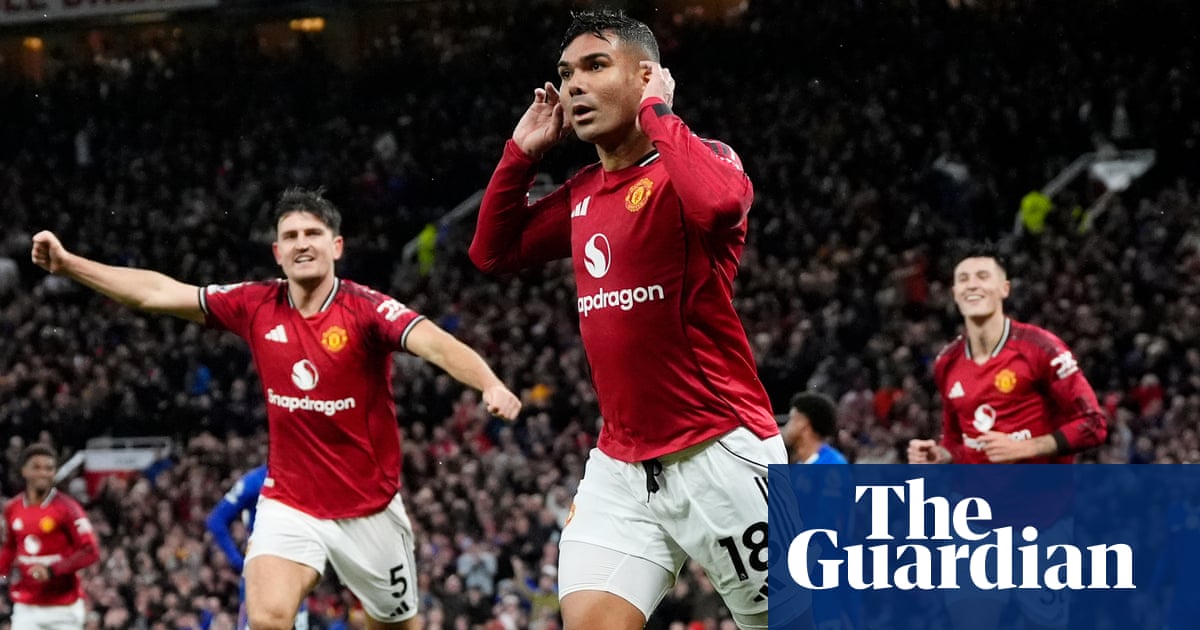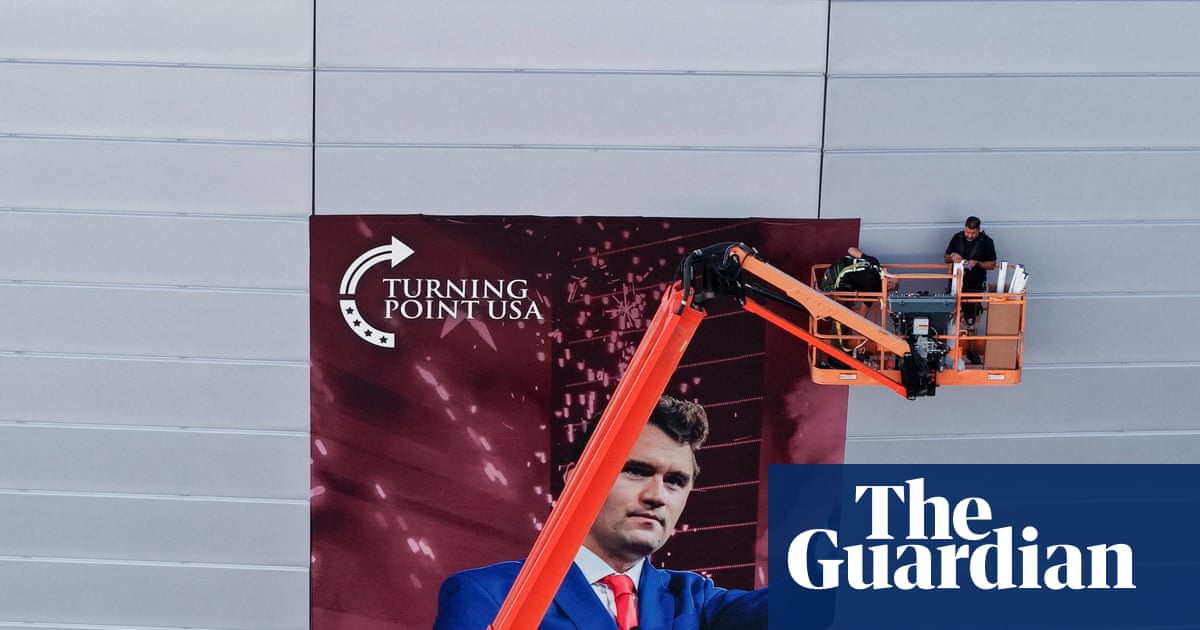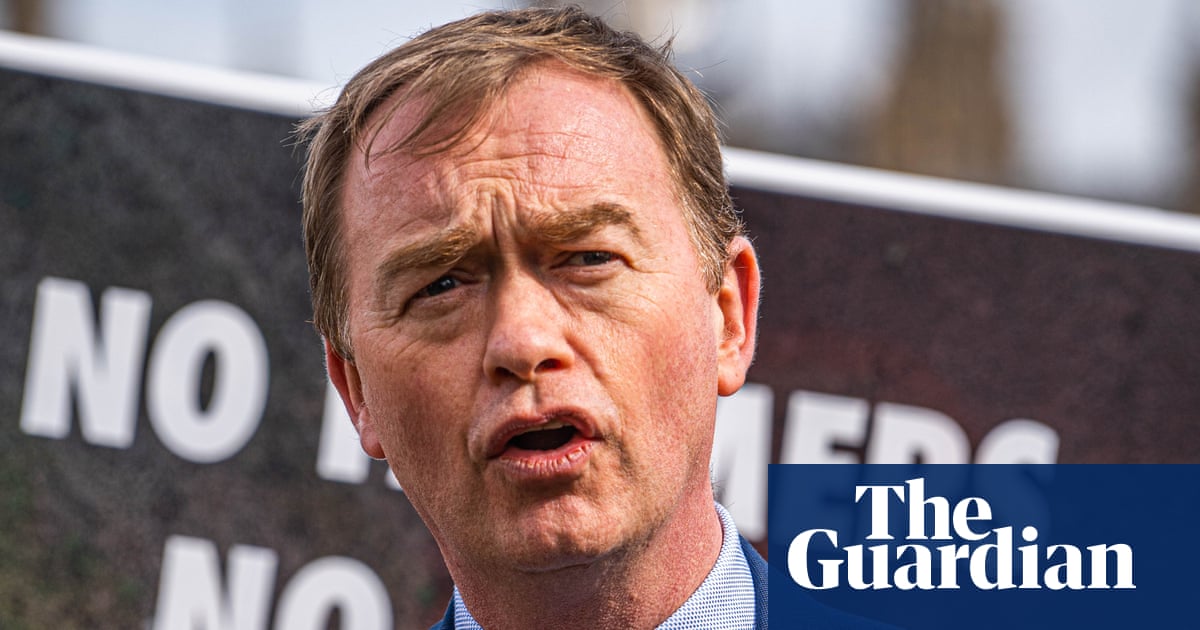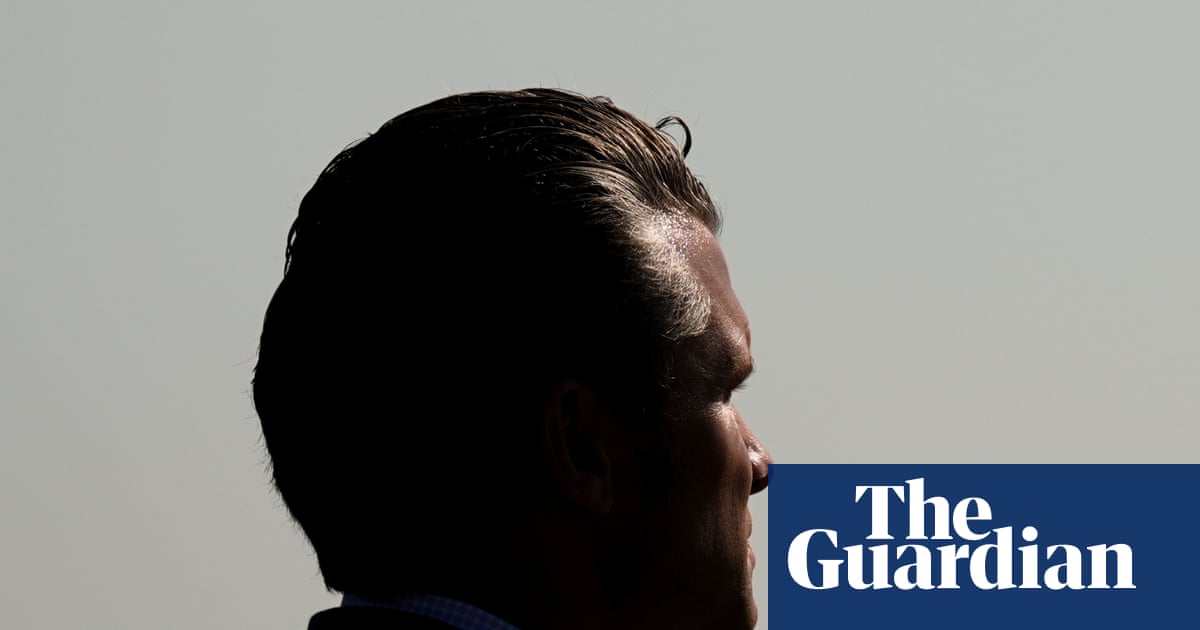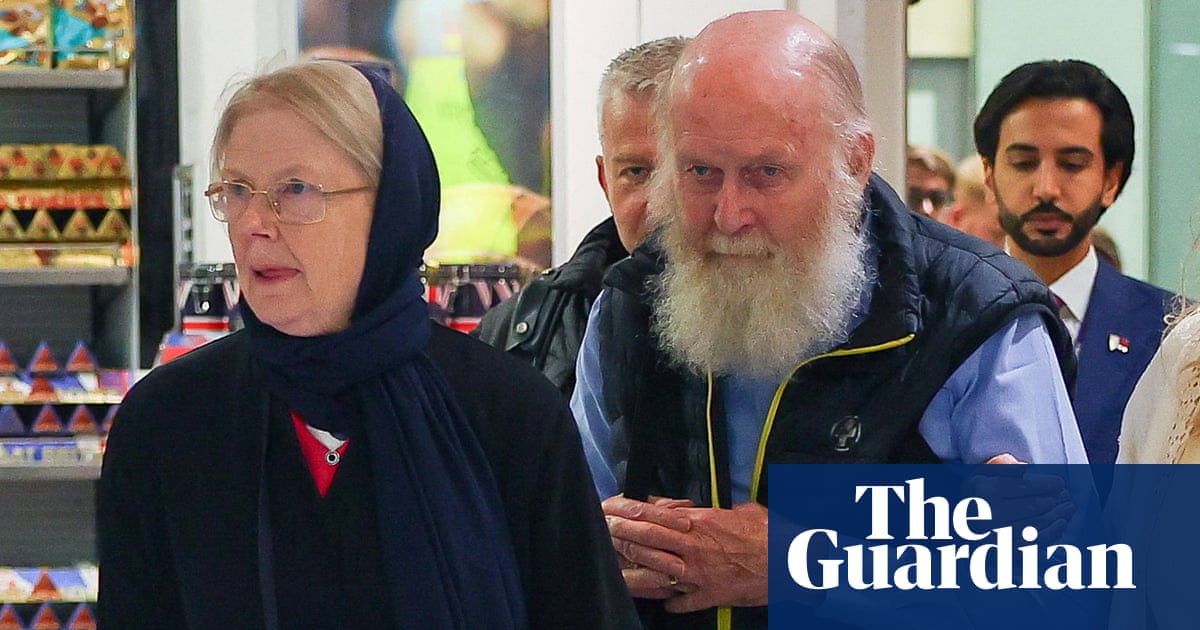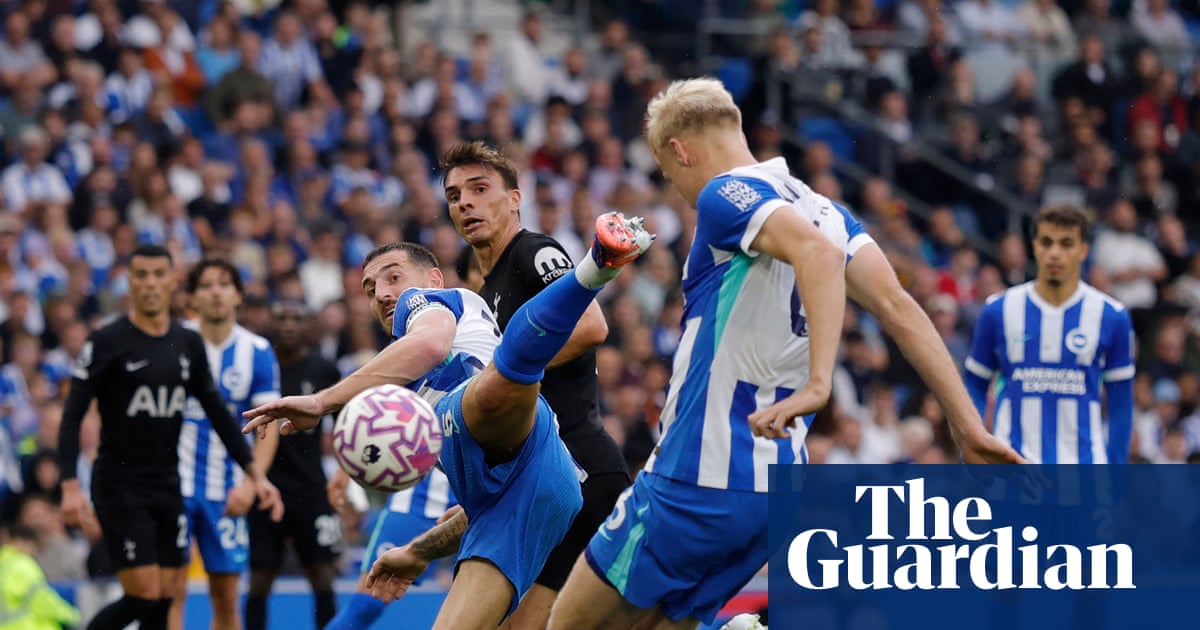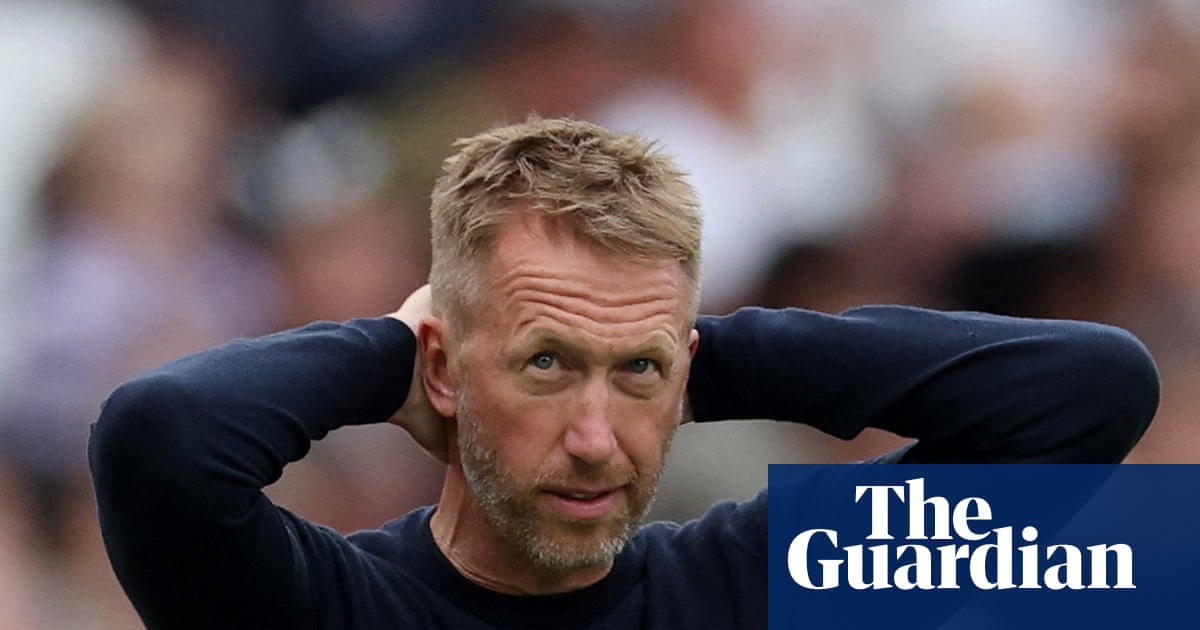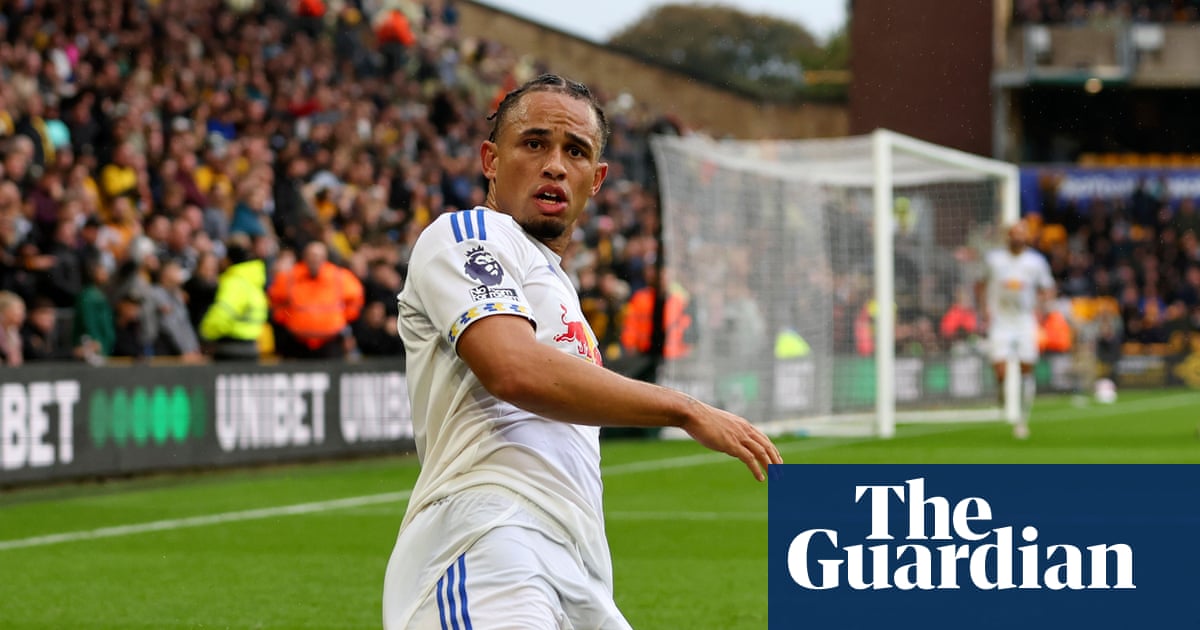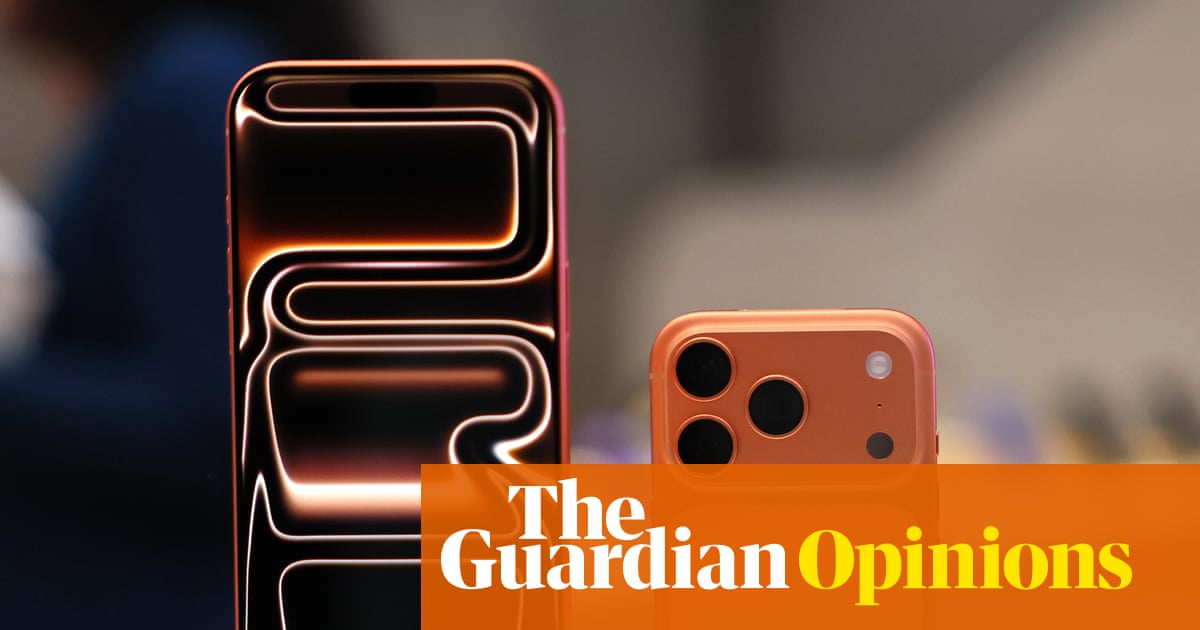Artificial intelligence is in the process of upending the business models of companies all over the world, but when it comes to the $100bn (£73bn) global theme park business the thrill of “big metal” rollercoasters is still the biggest draw.
Fiona Eastwood, the boss of the sector’s second biggest operator, Merlin Entertainments, says that in a world dominated by battles over screen time it is real-life experiences that provide families with an “antidote to phones and digital technology”.
“Tech definitely has a role, but you can’t beat the real experience of height, of speed, of big metal and that real life experience – because if you’re not careful technology can be everywhere.”
Eastwood, whose slate of 130 attractions in 22 countries includes nearly a dozen Legolands, Thorpe Park and Alton Towers, recalls abandoning virtual reality headsets on the Galactica ride at Alton Towers after theme park goers didn’t take to the experience.
“What we discovered was that it took people away from being together, they felt on their own, they may as well have been at home,” she says. “Of course technology has a role, but that role has to be not just doing it for gimmick’s sake. We’ve got AI and other tech use cases under way at the moment, but ultimately I’m a strong believer that it’s the real [life] experience that we are delivering.”
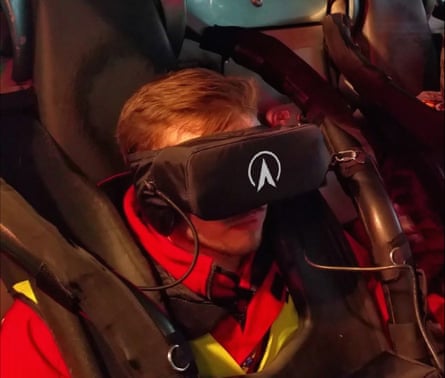
Eastwood, who is a board member of the industry body UKHospitality, joined Merlin a decade ago and was made interim chief executive in November, then confirmed in the role in February.
Prior to Merlin, Eastwood spent 18 years at the BBC in marketing, then moved to the commercial arm of the corporation, BBC Studios, where she had responsibility for the Doctor Who franchise.
Competition in the UK and Europe theme park sector is accelerating as Comcast, the US parent company of the Hollywood studio and theme park giant Universal, is building a theme park in Bedford that it aims to open in 2031.
The park, which promises a 115-metre high rollercoaster that would be the tallest in Europe, has received significant support from the government amid a push by Keir Starmer and the chancellor, Rachel Reeves, to kickstart economic growth.
Late last month it emerged that part of the government-agreed support for the project includes £500m of public investment in rail and road infrastructure, part of which will involve a new railway station being built.
Eastwood welcomes the competition but says any “special treatment” for Universal needs to also be considered for other park operators.
“It’s a great opportunity for the overall market,” she says. “With the analogy of ‘a rising tide lifts all boats’, I’m a big fan. The entire theme park market benefits. I think the only thing we need to be careful of is that everyone’s treated fairly in terms of planning permission.
“Planning permission in the UK is not easy. And so we need to make sure that if Universal are given any special treatment, that that special treatment is also given to the entire industry.”
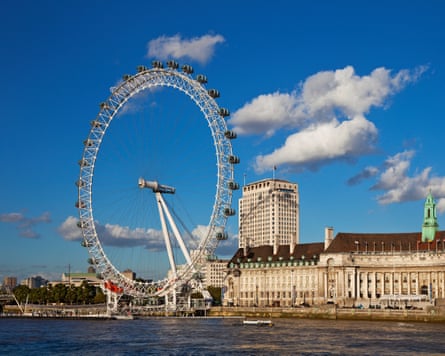
Eastwood has been quick to ring the changes at Merlin, aiming to simplify the sprawling global business to operate more as a single company.
“Merlin has grown up over many years as separate sites which have operated independently,” she says. “The big shift in our operating model was to become one company. For example, in the UK what you don’t want is Alton Towers doing something at the same time as Legoland Windsor.”
This weekend she is in China opening Merlin’s latest attraction, Legoland Shanghai, its first in the world’s second largest theme park market.
The 11th Legoland is being touted by Merlin as its most perfect at launch, with elements such as a 250-room hotel ready to go.
“It’s a big deal for us, it’s been many years in the making,” Eastwood says. “It’s going to be the world’s largest park at opening, it is a massive moment. It’s a real fusion of east and west. We will have 75 rides, lots of [interactive experiences], and it’s on the doorstep of 55 million people that live within a two-hour drive.”
As well as Legoland staples, such as the castle and dragon coaster, the park features attractions with a more specific appeal to local and regional tourists. These include a boat experience based on real-world trips through the water towns of the Yangtze lower delta and a Lego Monkie Kidride inspired by the legend of the Monkey King and his journey to the west.
after newsletter promotion
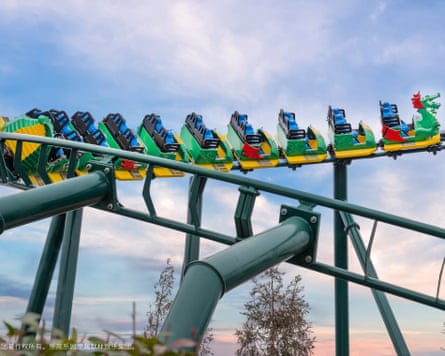
Lego is the brand that has underpinned Merlin – the theme park group’s largest investor is a consortium led by the family that controls the block-making empire – and it also operates internationally popular franchises including Madame Tussauds, Sea Life and the “Eye” observation wheels in cities including London.
Merlin – as well as its rivals such as Disney and Universal – face challenges with consumers becoming increasingly picky about what to spend their income on as the cost of living continues to hit household budgets.
Last month, Merlin reported that while visitor numbers increased slightly to 63 million last year, revenues fell 3.2% to £2bn and overall the business reported a pre-tax loss of £492m. This followed a £214m loss in 2023.
Most of the losses over the past two years are attributable to non-cash impairment charges of almost £600m in the value assigned to some of its attractions, reflecting the tough trading conditions and a reassessment of the growth rate of newer parks.
Legoland parks in New York and Korea have been written down by £340m over the past two years, while the 20 Madame Tussauds waxworks sites were subjected to a £163m impairment charge last year.
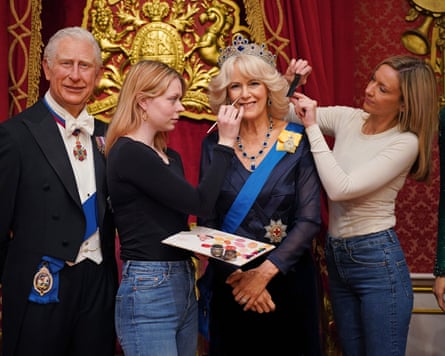
Merlin, where adjusted profits fell 15% last year to £540m, has responded by upping its marketing budget by £10m to £100m and increasing promotions and discounts.
The company also bolstered its marketing firepower by hiring Craig Inglis, the man who made Christmas ads a cultural phenomenon during his time at John Lewis, and Tui’s global brand and content director, Toby Horry.
As the battle for consumers’ attention in the digital era has reached fever pitch, Merlin has been on a deal-making spree to secure intellectual property crown jewels to exploit at its parks across the world.
Deals have been struck with the rights owners of the global preschool phenomenon Peppa Pig, Sony to exploit the $2bn Hollywood film franchise Jumanji, a $110m deal with the Microsoft-owned global gaming franchise Minecraft and most recently the US media company Paramount for Paw Patrol.
“I’d say our biggest competitor is entertainment in the home, or indeed, increasingly bedrooms, where kids have access to gaming and the internet,” says Eastwood. “What is in our favour is when you look at all the research, increasingly parents of kids aged from six to 12 and beyond actually see the home as a battleground.
“They’re trying to get their kids off screens. We know that what parents value is an opportunity to be together and experience a world outside the house. We’re almost an antidote to the phone and digital technology. What we deliver is that escapism.”

 2 months ago
82
2 months ago
82
